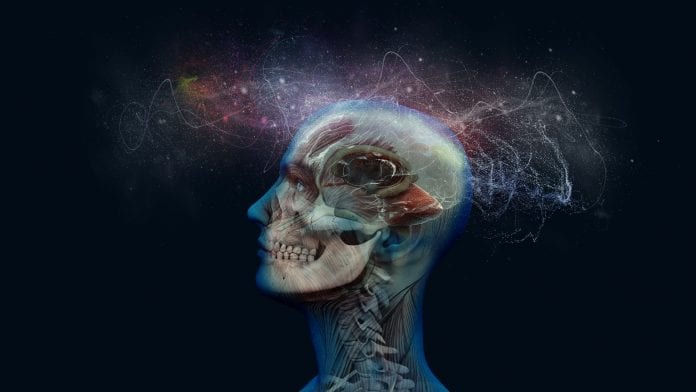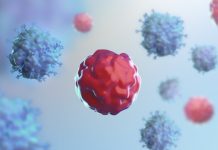
A wellbeing company is developing novel formulations of dimethyltryptamine (DMT) to help combat treatment resistant depression in combination with digital psychotherapy.
Nearly 264 million people live with depression across the globe, however, a portion of those do not respond to any depression treatments. ATAI Life Sciences, a global biotech company looking to help alleviate the current mental health crisis, has now launched Viridia Life Sciences to develop novel formulations of N,N-dimethyltriptymine (DMT) to investigate its efficacy for resistant depression in conjunction with digital therapeutics.
The psychedelic compound dimethyltryptamine (DMT), sometimes referred to as ‘the spirit molecule’, is prevalent in plants and animals, including humans, and has been used as a sacred entheogen for thousands of years by many indigenous communities. Now, recent research has shown the molecule could have benefits for conditions such as depression, anxiety, and PTSD, and could potentially offer a fast-acting treatment for resistant depression.
Florian Brand, CEO of ATAI spoke to Health Europa digital editor Stephanie Price about Viridia and its goal. “Our goal is to ensure maximum access to innovative mental health therapies,” he said. “DMT represents an opportunity to reach those who might be unable or unwilling to undergo a longer psychedelic experience.”
DMT for resistant depression
In animal models, in vitro assays have shown that DMT promotes neuroplasticity, and as assessed by neuronal growth and increased synaptic connections, both processes correlated with improvements in depressive symptoms. Electroencephalogram (EEG) observations of DMT’s effects on brainwaves have also shown changes hypothesised to be beneficial for depression.
CEO of Viridias, Glenn Short, PhD, said: “DMT is a component in a brew from South American shamans called Ayahuasca – which has two different botanicals. One is the source of DMT and the other is a compound that inhibits DMT’s metabolism, so it is a monoamine oxidase inhibitor. We can leverage DMT’s short half-life in the clinic in order to allow us to induce a psychedelic experience with DMT then immediately follow up that treatment with a psychotherapy session.
“We will be undergoing a series of preclinical studies focussed on pharmacology and toxicology in support of our regulatory submission for further research, which will allow us to move straight into Phase 1 trials.”
Viridia formulations of DMT
While DMT is commonly administered intravenously, Viridia is leveraging ATAI Life Science’s drug development expertise to generate multiple DMT products based on alternative routes of administration. These products will be developed under rigorous clinical standards and regulatory purview, and in accordance with good clinical practice, with an aim to further investigate the efficacy of the molecule for treatment resistant depression.
Short said: “DMT given by an intravenous drip (IV) is not always a short duration and is also very intense. What we aim to do is use the formulation chemistry to be able to slow the onset of the compound’s effects, as well as controlling the length and duration of the experience, so it is more gradual, and overall a more gentle and agreeable experience for the patient. We can really fine tune how a drug is released.
“We want to understand the maximum tolerated dose of DMT in order to develop agreeable doses for patients, and to understand how particular concentrations will influence efficacy. Traditionally, in the literature, it has to be given parenterally so most centres are currently using IV – we are going to use alternative approaches, and we are currently in the process of formulating different routes. This means that for subjects who are needle averse, we will have a formulation they can use.”
The importance of psychotherapy
A recent meta-analysis of 20 studies that focussed on the treatment of depression and anxiety by using a combination of a psychedelic drug with psychotherapy, found that the combination of the drug paired with the therapy was the most beneficial to subjects. Viridias will be taking a similar approach by using digital therapeutics following the administration of the compound.
“By paring digital therapeutics with DMT therapy we can prepare the subject for the experience before hand – but we can also monitor the patient after the therapy,” said Short. “The patient will have a direct line of communication back to the therapist and may also be able to chat to other people who are undergoing the same types of treatments. It also allows the therapists to have real time patient monitoring.
“We want to ensure that patients have continued support beyond the psychedelic administration in the clinic. The best results we are seeing is the combination of treatment with the therapy. Not a single one of the studies in the meta-analysis found that the substance alone was enough – this underscores the difference between the psychedelics that might be used in a recreational setting to ones that are used in a clinical setting.”
Battling the mental health crisis
The UN recently warned that the coronavirus pandemic could add to the current mental health crisis as people are forced into poverty and isolation, however, many current treatments for depression such as SSRI’s can cause further mental health problems for those who take them.
ATAI Life Sciences and Viridias are working to help combat the crisis by developing innovative treatments that address these significant unmet medical needs.
“As with many families out there I have a family member that struggles with both depression and psychosis, and this clearly has an impact that the patient themselves can feel, but also their family,” said Short.
“For me, the motivation is to really understand and find alternative depression treatments, because there is a constant change in medications and no sense of balance and normalcy for these patients. A change in medication leads to instability and periods of relapse and causes worry and anxiety within the family. Coming up with alternative treatments is extremely important and that is part of Viridias’ mission. With psychedelics it is not a ‘one-size-fits-all approach’ – we all have fundamental differences in our neurochemistry and so we need to be able to have more options for these patients.”








